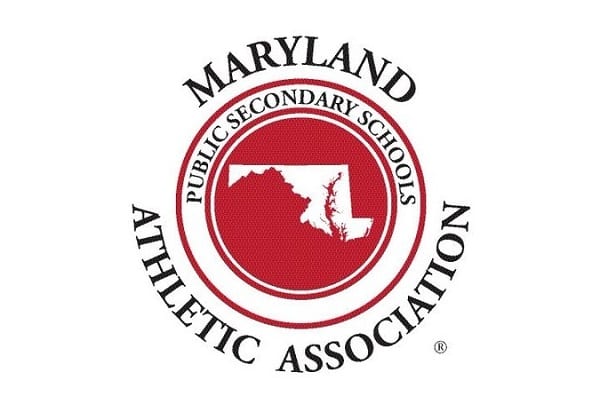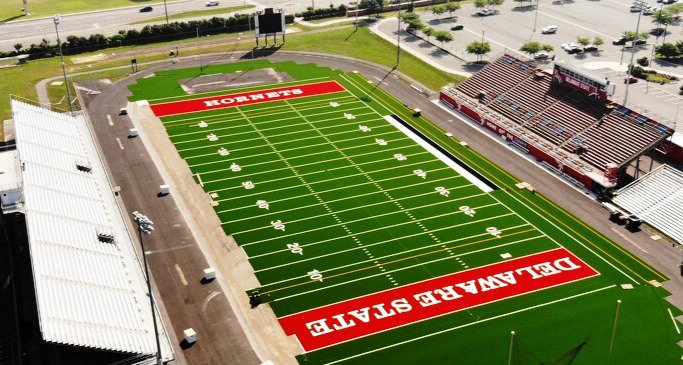Athletic Directors In N.J. Concerned About Complexities Of Job
At the annual Directors of Athletics Association of New Jersey convention in Atlantic City last month, The Star-Ledger surveyed approximately 100 athletic directors from public and private high schools across the state. Four survey and six open-ended questions were asked, and the responses provide a rare glimpse into the thinking of the men and women whose actions affect more than 270,000 student-athletes. Some athletic directors didn’t answer every question.
Among the most interesting findings:
• Poor sportsmanship by parents, fans and student-athletes is the biggest concern of ADs.
• Budgeting their own time and their school’s money have become issues they deal with on a daily basis.
• The growing knowledge of concussions has led to a larger concern for the management and prevention of brain injuries.
• Most ADs are satisfied with the operations of the New Jersey State Interscholastic Athletic Association, but continue to question the public/non-public setup for competition.
The survey generated anonymous responses from athletic directors whose experience ranged from four months to 39 years.
In subsequent follow-up interviews, ADs were given a chance to speak specifically and on the record about several topics.
“This job is 24/7 and every day is a new adventure,” said Bill Edelman, the athletic director at Vernon High in Sussex County and president of the DAANJ. “I always share this with young ADs: Once you know what you’re doing, this job is just like treading water. And at best your lips are just above the surface.”
Sportsmanship
In his 6 1/2 years as the athletic director at Madison High in Morris County, Sean Dowling has seen “some ugly stuff.”
And he’s not the only one.
The survey showed that 87 percent of ADs are either “often” or “always” worried about the sportsmanship of parents and fans; 84 percent expressed the same concern over the sportsmanship of student-athletes.
To try to minimize rowdy behavior in the bleachers, Dowling hosts a meet-the-coaches night for parents each sports season — a strategy implemented at many other high schools — to discuss behavior at games.
“The expectations of parents on officials and on athletes are unrealistic,” Dowling said. “I tell the parents: ‘Your kids are playing sports because it’s fun. The coaches are there because it’s fun. You should be attending your sons’ and daughters’ games because it’s fun.’”
Edelman said it’s difficult to reinforce proper expectations for student-athletes when parents misbehave at games.
“We remind them that they are the adults and they should be acting as such,” Edelman said. “After a while, it gets so old that some athletic directors just don’t want to deal with it. That’s probably why we have such a high turnover rate — when you have to deal with out-of-control parents you say, ‘This isn’t worth it. I’m getting out.’”
Budgeting
As school aid is cut across the state, the effects have trickled down to high school athletic departments on several levels, including budgeting time and money.
On an open-ended question, 38 ADs said the biggest difficulty they face on a daily basis is having too many responsibilities. District-wide cuts have sometimes forced ADs to take a leadership role in additional areas of the school, such as physical education, the health program and discipline, among others.
At Columbia High, athletic director Dave Curtin might be the busiest man in the building. In addition to overseeing athletics, he also directs student activities and clubs, the student council, the custodial staff and oversees all building and facility use.
Oh, and he’s the varsity football coach.
“Little elves don’t come in during the night and take care of all this,” said Curtin, who pointed out his added responsibilities are not the result of budget cuts. “You just do it. You just have to get it done. You just think on your feet and take care of it.”
Meanwhile, athletic directors are being asked to slice money from their own departmental budget — sometimes in the form of freshman teams or entire sports programs.
Seventy percent of ADs are “much more” concerned with budget issues than they were a decade ago or at the beginning of their tenure.
Health and Liability
As sports and injury awareness continues to evolve, athletic directors are taking a more active role in seeking preventative measures.
Thirty-seven percent of ADs are “always” concerned about risk management and liability — and 64 percent are more worried about those than they were a decade ago.
“It seems like the first response when someone gets injured is to sue first and gather information later,” said Steve Jenkins, the athletic director at Bloomfield High.
But Jenkins said the focus isn’t on liability in many of the health-related areas, specifically concussions.
“We don’t want to do a better job with concussion management because we’re scared of being sued, but because we want to treat the kids better,” he said.
As the recent influx of information about concussions has created growing awareness, 60 percent of ADs are now “often” or “always” concerned about concussion management. Even more telling: 84 percent are more worried than they were 10 years ago.
“There is information overload, and there’s a panic that’s going through, but I think it’s warranted,” said Dowling, the Madison AD. “Kids are getting bigger, faster and stronger with all this training and they’re more susceptible to these concussions.”
NJSIAA
The individuals who speak with the New Jersey State Interscholastic Athletic Association, the state’s governing body for high school sports, more than anyone else in the state are largely happy with the job the embattled organization does.
Eighty percent of ADs are either “somewhat satisfied” or “very satisfied” with the NJSIAA’s day-to-day operations.
“Not only do they answer their phones, but I have three cell phone numbers for people down there, too,” Dowling said. “They are absolutely accessible, and they get back to you. No issue from an AD is too small for them.”
On an open-ended question asking what the NJSIAA does best, 47 ADs said the organization is attentive, accessible and answers questions quickly. On a separate open-ended question, asking in which area the organization needs the most work, 16 ADs remarked about “public relations” or “educating people about everything they do.”
“What has happened from all of this scrutiny of them,” Dowling said, “it’s allowed the athletic directors to take a step back and look at (the NJSIAA) a little harder, a little deeper. And it’s given everyone a greater appreciation for what they do on a daily basis.”
The biggest concern among ADs regarding the NJSIAA remains its handling of issues between public and non-public schools — long a point of contention in the state. Thirty-nine percent of ADs are either “somewhat dissatisfied” or “very dissatisfied” with the NJSIAA in that area. (Twenty-four percent were neutral and 37 percent fell on the “satisfied” end of the spectrum.)
On an open-ended question, 19 ADs identified this concern as the area on which the NJSIAA needs the most work.
Edelman, the AD at Vernon High, said the NJSIAA’s efforts to cure the imbalance — most recently, with a realignment of schools in the north — simply haven’t worked.
“You’re asking people who have a passion for competing to compete and play on a level playing field,” Edelman said. “But the playing field isn’t level. And that’s a problem.”







